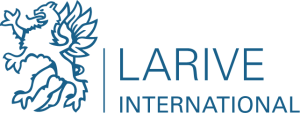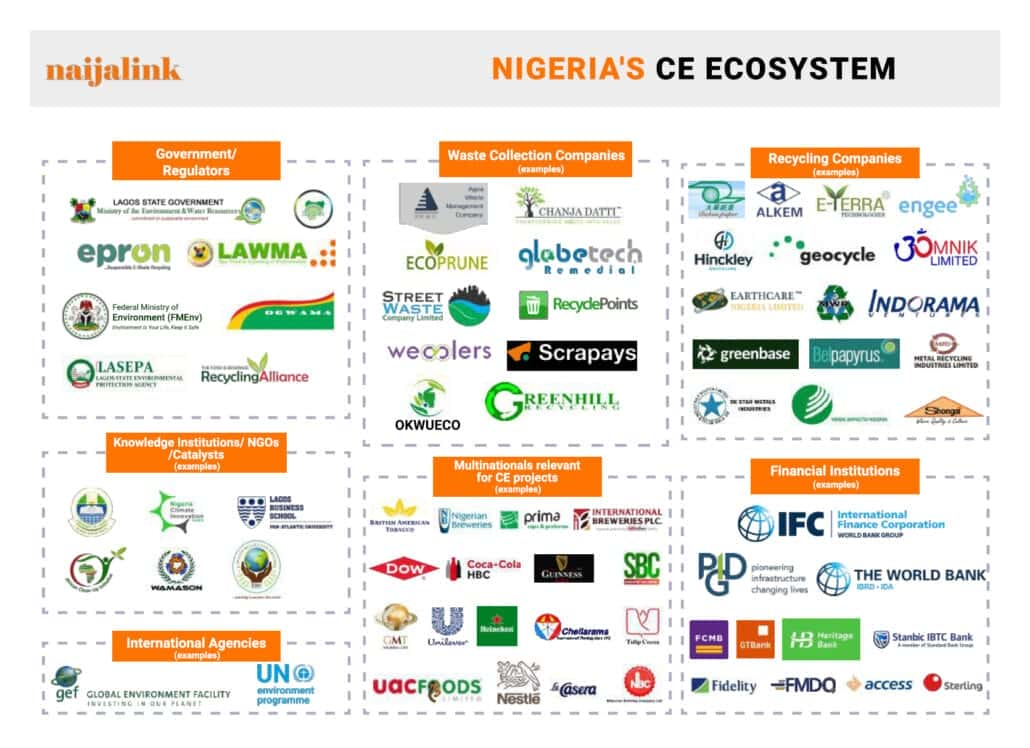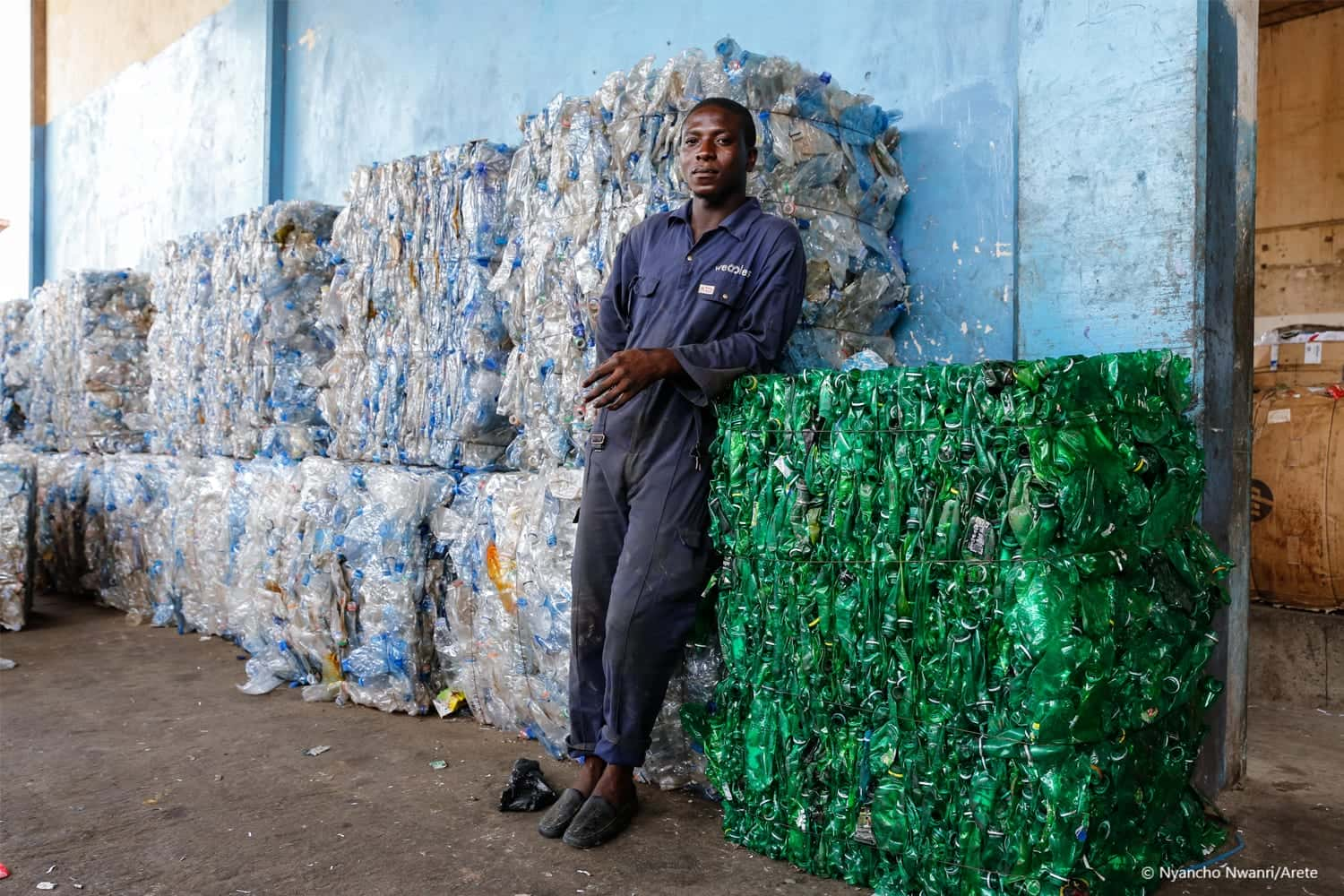The Dutch government has identified Nigeria as a key focus in its Africa strategy not only because of its size, but also the opportunities for bilateral cooperation and Dutch businesses.
The Consulate General of the Kingdom of the Netherlands in Lagos, Nigeria, has retained Naijalink as a consulting partner for this project. Naijalink is an advisory and services company and Larive Group partner that supports international companies in accessing the opportunities in Nigeria.
This report is part of wider efforts of the Netherlands to play a significant role in the development of Nigeria’s circular economy (CE). The goal is to deepen existing knowledge, find interesting business partners and opportunities for Dutch companies, and explore additional fields for business in waste/CE between the Netherlands and Nigeria/Lagos.
Naijalink’s report in a nutshell
Naijalink interviewed over 40 companies and institutions and backed those findings up with research, using reliable (open) sources as well as knowledge partners. In Nigeria it is notoriously difficult to find data, thus interviews with key players tend to be crucial when trying to assess market opportunities. Many of those interviewed are potential business partners for Dutch companies wishing to enter the market.
Circular Economy in Nigeria
In a way, the circularity concept has since long been adopted by the informal sector, a significant chunk of the economy. Examples are the re-use of plastic bottles for local, home-produced drinks, and used wine bottles for packaging of roasted groundnuts. Many are energy conscious as well, as self-generated energy through petrol generators tends to be expensive. Waste collection and selection of reusable materials also takes place on a large scale in this informal system. However, most of this is informal, small scale, and unorganized.
For Nigeria to move forward, a more formal circular ecosystem needs to emerge. The Nigerian public and private sector are increasingly aware of the concept of circularity in the economy. The Nigerian public sector is becoming more committed to the development of a circular economy. In addition, the private sector is continuously launching new projects to reach their sustainability targets.
Waste value chains in Nigeria
Before diving into the opportunities for Dutch companies in the field of Circular Economy, Naijalink describes the waste value chains and trends. Six different waste categories are described of which, plastic, e-waste and biowaste appear to offer the greatest opportunities for Dutch-Nigerian collaboration.
Naijalink has identified various, real and concrete business opportunities for Dutch companies. To spark interest, we will briefly discuss a couple below:
Plastic waste
Plastic waste is a huge source of environmental pollution, especially in Lagos. At the very least, Lagos generates 6 MN tons of waste each year, 23% of which is plastics, making 1.38 MN tons of plastic waste per year of which only 12% is recycled.
As of 2019, about 2,250 tons are generated daily and at USD 500 per ton, if only 500,000 tons of plastic can be recycled and reused annually, it will potentially be a USD 250 MN industry.
The Food and Beverage Recycling Alliance (FBRA) was established in 2013, the alliance currently has some of the largest food and beverage companies in Nigeria as its members such as Nestle Nigeria, Nigerian Breweries, Coca-Cola Nigeria, Guinness Nigeria, Omnik Limited, and Engee PET amongst others. FBRA also has collection partners such as Chanja Datti, Recycledge, RecyclePoints and several others. With the support of its member companies, FBRA has carried out various initiatives and projects in campaign awareness, promotion of proper disposal, and segregation. Currently, the demand for recycled raw materials is higher than the supply.
Opportunity: TURNING PLASTIC WASTE TO ENERGY
FBRA, in partnership with FMCG companies, is actively looking to establish more ‘plastic waste to energy’ facilities. Dutch companies can partner with the likes of Geocycle to ramp up capacity. Moreover, Lagos Waste Management Authority (LAWMA) is open to partnerships as the agency and Lagos State government are actively looking to harness waste to resolve power supply issues.
E-waste
The formal e-waste recycling sector is still at its early stage. In 2019, only 0.4% of the 461,300 tons of e-waste generated was collected and recycled through appropriate documented channels. The remaining 99.6% is ‘processed’ mainly by informal recyclers undergoing different crude practices such as burning plastic cables, acid leaching, hammering, and other common methods to reclaim valuable metals and materials from the discarded electronics.
The two recognized and standard certified formal e-waste recycling companies in Nigeria are E-Terra Technologies Limited and Hinckley Group. Both companies partner with corporate entities in industries such as banks, technology, and telecommunications to properly collect and recycle their e-waste.
Opportunity: BATTERY RECYCLING
Hinckley Recycling is seeking to avoid shipping all batteries outside of Nigeria because exporting the batteries is ultimately not financially sustainable. Therefore, Hinckley recycling is actively seeking to establish a facility to cater for phone battery recycling, solar battery recycling, and second-life use in the e-waste value chain. Hinckley is currently exploring who they can collaborate with on the establishment of such a facility.
Biowaste
Organic or biowaste is the largest chunk of the waste generated in Lagos and Ogun State at 43% and 30% respectively. That means a combined 7,614 tons per day. While a lot is the result of residential consumption, there is also organic waste produced by industrial companies.
Recycling of organic waste is actively done by a number of companies. For example, Earthcare Compost Company has the capacity to process 1,500 metric tons per day. Richbol Environmental Services also converts organic waste to fertilizers. Agriculture is Nigeria’s largest economic sector and many small holder farmers depend on organic waste as fertilizer for their farms.
Nigeria also has Africa’s largest livestock population. Hence, there is a natural opportunity for companies to focus on recycling organic waste into animal feed. For example, International Breweries and Nigerian Breweries (Heineken) currently partner with animal feed companies through the supply of spent grains which can be processed to serve as animal feeds.
Opportunity: BREWERY WASTE INTO ENERGY
Nigerian Breweries wishes to start separating the protein from spent grain as part of their zero-waste initiative. They would continue to sell that protein to the livestock and animal feed companies, but the remaining product would be compressed in pellets that can be used to produce energy (to be re-used by the company). Nigerian Breweries is currently exploring who they can collaborate with and which technology to use to set up this process.
Other waste value chains
The report also dives into textile, scrap metals and paper waste. All of these categories contribute significantly to the total waste in Nigeria. Private sector initiatives are launched to address some of these issues.
For example, Chinese HongXing Steel Company Limited recently invested about USD 100 MN to establish two manufacturing plants in Lagos which will make use of metal scraps during production.
Smaller recycling plants do exist as well as they are relatively affordable. Data collated from secondary research indicate that the minimum start-up capital for a medium scale metal recycling plant is around NGN 5 MN (~USD 12,000), while the return on investment is about 60%.
Conclusion
There are many avenues for Dutch companies to become involved in Nigeria’s circular economy. Many stakeholders identified the need for building capacity, knowledge, and opportunities for export of technology and/or investment.
Plastic, e-waste and biowaste may be the most interesting for Dutch companies, not just because of the size of the problem, but also the presence of large (international) companies who can be an ‘anchor’ to Dutch involvement as either supplier of waste or buyer of recycled projects.
There certainly are challenges for any company interested in doing business in Nigeria, such as poor infrastructure, a lack of regulatory enforcement, political changes, a volatile exchange rate, and poor financing options. However, circularity is an increasingly profitable business. All along the waste value chains there are several opportunities and projects to explore.
Naijalink recommends that interested Dutch companies contact the companies profiled in this report and discuss in more detail how they can collaborate. CE projects are often driven by the big multinational corporations and associations such as the FBRA and EPRON can be driving forces of collaboration with such corporates. In our view, the best projects involve a leading (multi)national conglomerate as supplier of waste or off taker of recycled materials (thus the ‘anchor’ of a bankable project), a local collection/recycling company and their Dutch counterparts.
If you would like to access the full report, please follow this link or reach out to Jessica Schulte.
This report was commissioned by the Netherlands Enterprise Agency




